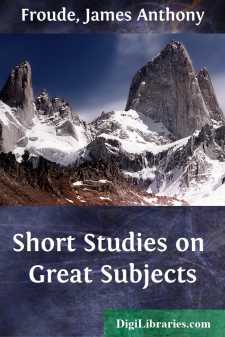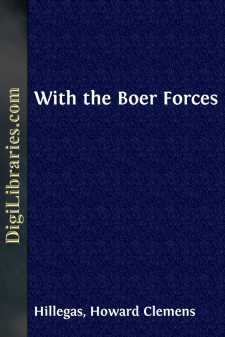History
- Africa 30
- Americas (North Central South West Indies) 50
- Ancient 68
- Asia 58
- Australia & New Zealand 8
- Canada 41
- Caribbean & West Indies 1
- Civilization 20
- Eastern Europe 12
- Europe 310
- Expeditions & Discoveries 60
- General 77
- Historical Geography 1
- Jewish 9
- Latin America 3
- Medieval 8
- Middle East 13
- Military 248
- Revolutionary 8
- Study & Teaching 5
- United States 353
- Western Europe 56
- World 13
History Books
Sort by:
by:
Bill Nye
CHAPTER I. THE DISCOVERY OF AMERICA. It was a beautiful evening at the close of a warm, luscious day in old Spain. It was such an evening as one would select for trysting purposes. The honeysuckle gave out the sweet announcement of its arrival on the summer breeze, and the bulbul sang in the dark vistas of olive-trees,—sang of his love and his hope, and of the victory he anticipated in the...
more...
I. APOLOGY FOR "YET ANOTHER BOOK" ON THE SOUTH AFRICAN QUESTION. FUTURE PEACE MUST BE BASED ON JUSTICE,—TO COLOURED AS WELL AS WHITE MEN. DIFFERENCE BETWEEN LEGALIZED SLAVERY AND THE SUBJECTION OF NATIVES BY INDIVIDUALS. THE TRANSVAAL IN 1877: ITS BANKRUPTCY: ITS ANNEXATION BY GREAT BRITAIN: ITS LIBERATION FROM GREAT BRITAIN IN 1881. CONVENTION OF 1881 SIGNED AT PRETORIA. BRITISH...
more...
CHAPTER I. As it is in the blood of most Englishmen from the "West Country" to seek adventure abroad, it is little wonder that the visit of an uncle from Australia strengthened a desire I felt to seek my fortune in that country. This uncle—H. C. Corfield—was the owner of some pastoral country in the Burnett district, and described in glowing terms life in the Australian bush. I might say...
more...
HENRIE THE FIRST, YOONGEST SONNETO WILLIAM THE CONQUEROUR. Henrie the yoongest sonne to William the first, brother to Rufus latelie departed, the first of that name that ruled heere in England, & for his An. Reg. 1.1100. knowledge in good literature surnamed Beauclerke, was admitted king by the whole assent of the lords and commons, and began his reigne ouer England the first of August, in the...
more...
by:
Thomas Carlyle
Chapter I. — OF SCHLESIEN, OR SILESIA. Schlesien, what we call Silesia, lies in elliptic shape, spread on the top of Europe, partly girt with mountains, like the crown or crest to that part of the Earth;—highest table-land of Germany or of the Cisalpine Countries; and sending rivers into all the seas. The summit or highest level of it is in the southwest; longest diameter is from northwest to...
more...
THE THEATRE OF THE WAR The war in South Africa has been no exception to the general rule that the origin of current events is to be sought in the history of the past, and their present course to be understood by an appreciation of existing conditions, which decisively control it. This is especially true of the matter here before us; because the southern extreme of Africa, like to that of the American...
more...
THE SCIENCE OF HISTORY: A LECTURE DELIVERED AT THE ROYAL INSTITUTION February 5, 1864. Ladies and Gentlemen,—I have undertaken to speak to you this evening on what is called the Science of History. I fear it is a dry subject; and there seems, indeed, something incongruous in the very connection of such words as Science and History. It is as if we were to talk of the colour of sound, or the longitude...
more...
CHAPTER I Immediately after war was declared between Great Britain and the Boers of the Transvaal and the Orange Free State, the two South African republics became ostracised, in a great measure, from the rest of the civilised world. The cables and the great ocean steamship lines, which connected South Africa with Europe and America, were owned by British companies, and naturally they were employed by...
more...
by:
Thomas Carlyle
CHAPTER I. MIDAS. The condition of England, on which many pamphlets are now in the course of publication, and many thoughts unpublished are going on in every reflective head, is justly regarded as one of the most ominous, and withal one of the strangest, ever seen in this world. England is full of wealth, of multifarious produce, supply for human want in every kind; yet England is dying of inanition....
more...
CHAPTER I. A ROUGH START IN LIFE. To attempt to write and publish sketches of my somewhat eventful career is an act that, I fear, entails the risk of making enemies of some with whom I have come in contact. But I have arrived at that time of life when, while respecting, as I do, public opinion, I have hardened somewhat into indifference of censure. I will, however, endeavour to write as far as lies in...
more...











